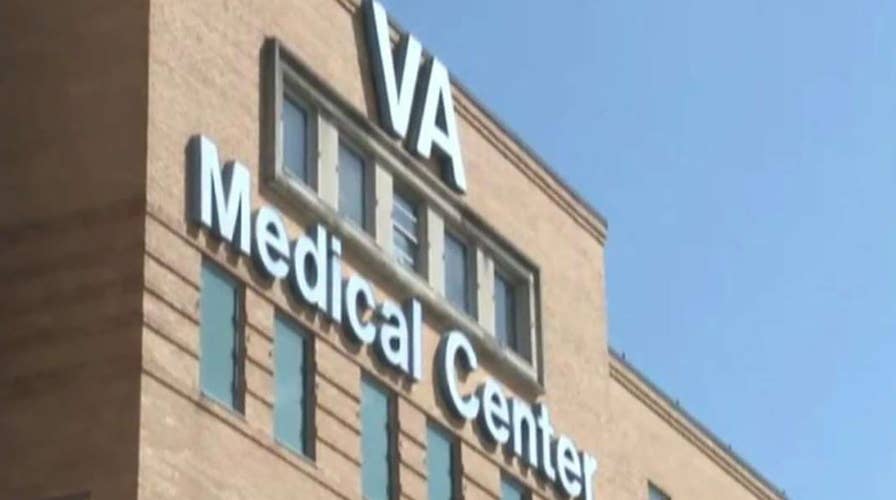VA struggles to fill 49K hospital jobs, blaming salary caps and government regulations
Fox News contributor Joey Jones on VA struggles and how they relate to Medicare-for-all.
The Department of Veterans Affairs turned a corner in June when it launched the Community Care and Urgent Care programs, marking the first steps in implementation of the VA MISSION Act. This success is due in large part to the leadership of President Trump and Veterans Affairs Secretary Robert Wilkie, who have been determined not to repeat the mistakes and failures that led to the wait-time scandals of 2014 and the poor implementation of the Veterans Choice Program.
The VFW recently published its seventh "Our Care" survey, in which veterans reported a positive view of the VA MISSION Act, citing the new urgent care benefit, shorter wait times and fewer billing problems. The survey authors said improved patient access to care is almost certainly the result of new executive leadership at the VA, as well as the result of expanded community care options.
But issues remain. There is more work to be done to make the VA the quality health care institution our veterans deserve. Recent stories from West Virginia and Atlanta demonstrate that VA leadership must keep its sights trained on proper implementation of the VA MISSION Act, continued improvement and further reform.
TRUMP CAMPAIGN TO LAUNCH 'VETERANS FOR TRUMP' COALITION
Too many veterans and even some VA staff don’t understand the new community and urgent care programs. Which veterans are eligible for VA health care, what services they will get and how much they will pay is confusing to veterans and staff, as standards have become a patchwork of “fixes” since the last major overhaul in 1996.
Further, the average Veterans Health Administration facility is 50 years old. In addition to not being designed to meet the needs of today’s veterans, these facilities have become a drain on precious VA resources. Relatedly, the VA’s budgeting has become unsustainable, as politicians remain content throwing more taxpayer dollars at problems instead of working toward innovative and cost-saving solutions.
More from Opinion
These lingering issues hinder the delivery of health care and other benefits for some today, and if not resolved, they will negatively impact future generations of veterans as well. But the VA MISSION Act was never meant to be the end of VA health care reform. On the contrary, it was meant to fix prior failures and pave the way for future reforms.
CLICK HERE TO SIGN UP FOR OUR OPINION NEWSLETTER
What does this path look like?
It all starts with what Gen. Omar Bradley said in 1947: “We are dealing with veterans, not procedures; with their problems, not ours.” The VA needs to follow its new health care guiding principle: "Veterans’ needs always come first."
To utilize the health care options they need and deserve, veterans must be informed consumers and understand their health care choices and rights.
A fundamental shift to this mindset will ultimately ensure our veterans are getting the care they need, when and where they need it.
The VA should prioritize its education efforts to ensure veterans everywhere are aware of new benefits and eligibility requirements. To utilize the health care options they need and deserve, veterans must be informed consumers and understand their health care choices and rights.
CLICK HERE TO GET THE FOX NEWS APP
Lawmakers should push to accelerate the launch of the asset and infrastructure review (AIR) commission, a provision outlined in the VA MISSION Act. Today’s veterans are markedly different than those of previous generations — they are more geographically spread out, they face different service-connected injuries, and they must deal with a health care delivery system that has changed significantly. The VA’s outdated infrastructure is not equipped to address the newer generations of veterans and failing to act soon only siphons off scarce resources for underused and vacant buildings.
And, as the government’s second largest institution — behind only the entire Department of Defense — the VA should take a page from the DoD playbook and perform a comprehensive, programmatic audit. Taking steps to identify IT, management, financial, contracting and other deficiencies can root out waste, reduce costs, and improve efficiency. In other words, a better, sustainable VA for today’s veterans and tomorrow’s.




















